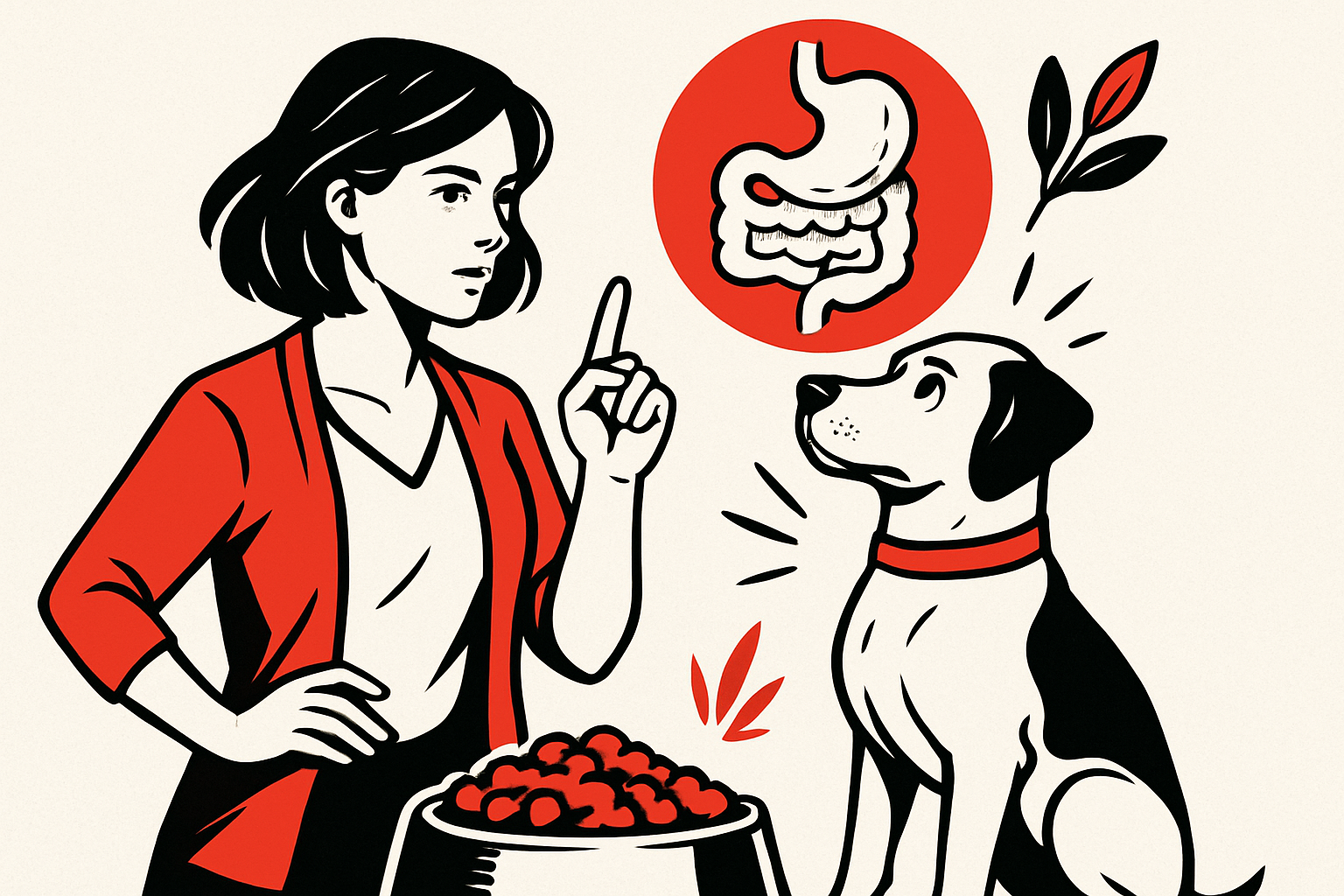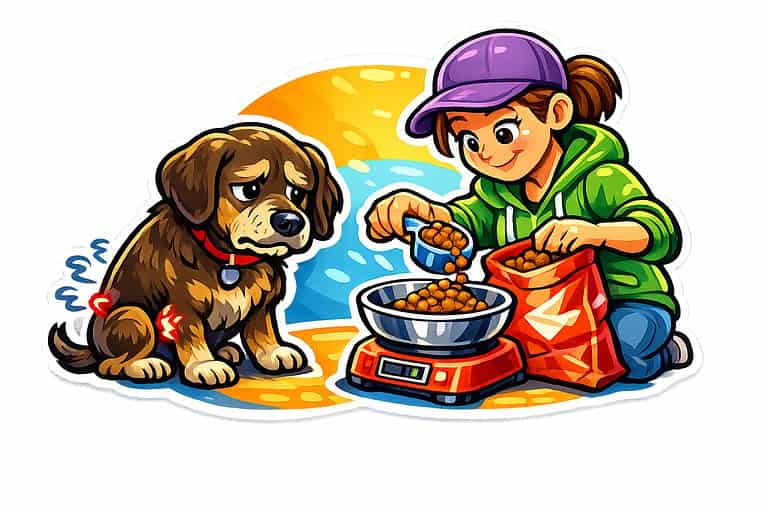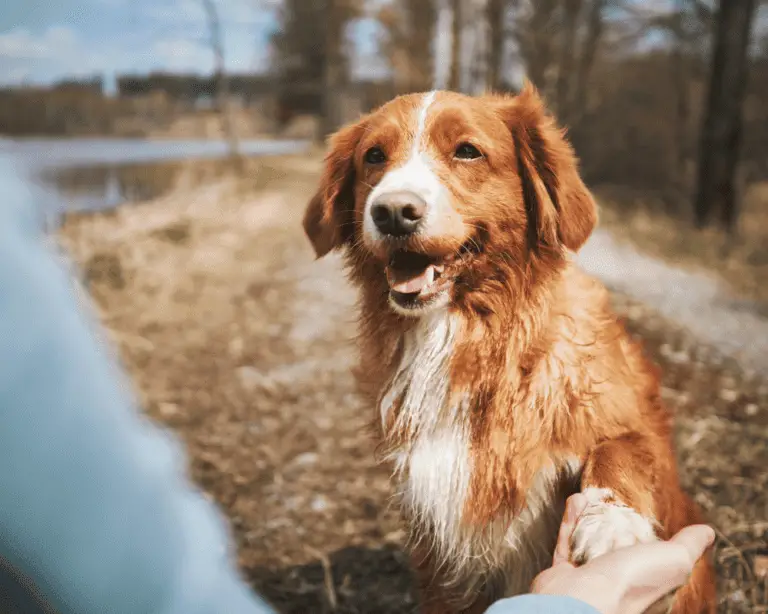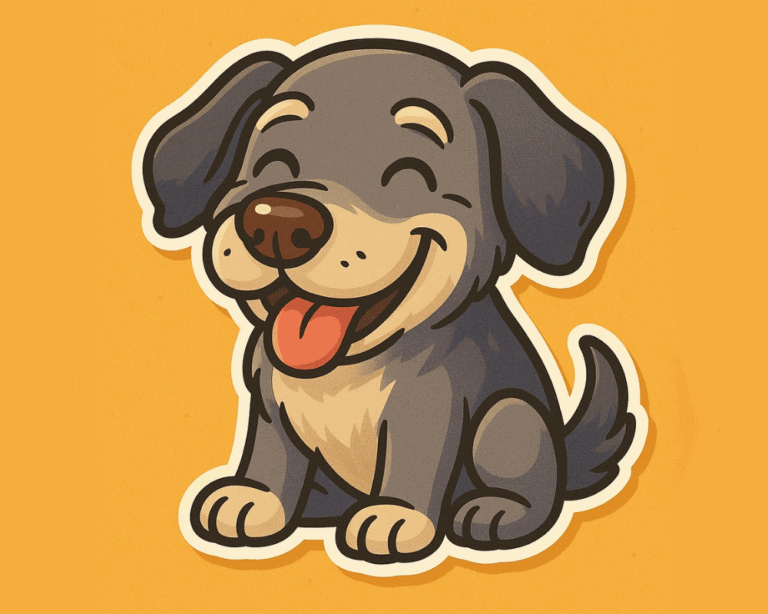13 Signs Your Senior Dog Needs a Vet Visit
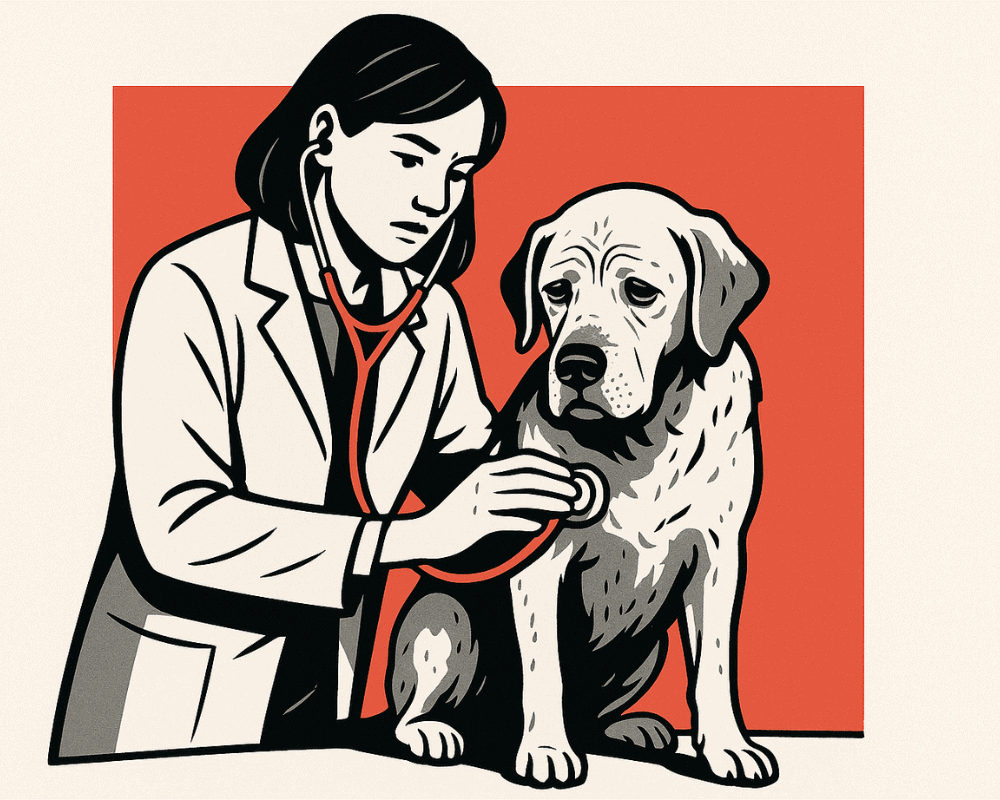
Senior dogs sometimes need special attention. They can’t always tell you when something’s wrong. That’s why it’s important to look closely and watch for changes. Small signs can point to bigger problems that require a visit to the vet.

Your loyal companion has brought you joy for many years. Now it’s time to give something back. With the right care and regular checkups at the vet, you can help ensure your dog does well in old age. That way you can keep enjoying many wonderful moments together.
1) Loss of Appetite
If your senior dog suddenly eats less or stops eating altogether, that’s a warning sign. You might notice he leaves his favorite food or turns down treats. That can have a variety of causes.
Dental pain or problems in the mouth can put your dog off his food. Gastrointestinal issues often lead to loss of appetite too. Sometimes more serious illnesses are behind it.
Watch whether your dog is just picky for a day or goes longer without eating. If he refuses multiple meals, you should go to the vet. The vet can find the cause and help your four-legged friend.
In the meantime, try offering softer food or warming his meals. Sometimes a small portion from your plate can help stimulate his appetite.
2) Difficulty Standing
If your senior dog has trouble getting up, that’s an important warning sign. You might notice he takes longer to rise from his spot.
Sometimes he trembles or even whimpers softly. That can point to painful joints or muscle weakness. Especially after longer rest periods, it’s hard for him to get going.
Also watch whether your dog slips more often or seems unsteady on his feet. He may avoid stairs now or stop jumping on the couch. Those are signs something isn’t right.
A vet visit is important then. The vet can find the cause and help your four-legged friend. He may only need pain medication or special exercises. With the right treatment, getting up will become easier again for your loyal friend.
3) Increased Thirst
Watch whether your senior dog is drinking more water than usual. If he goes to the bowl more often or empties it faster, it could be a sign of a health problem.
Increased thirst can point to various conditions. These include kidney issues, diabetes, or an overactive thyroid. Some medications can also make your dog thirstier.
Keep an eye on how much your dog drinks. A healthy dog needs about 50–60 ml of water per kilogram of body weight per day. If he drinks significantly more, talk to your vet.
Frequent drinking can also go hand in hand with increased urination. Watch whether your dog needs to go out more often or even has accidents in the house. Those are additional clues you should share with the vet.
4) Sudden Weight Loss
Your dog is getting thin and you don’t know why? That can be a sign of serious problems. Look closely to see whether your four-legged friend is eating less or even refusing food.
Sometimes it’s the teeth. If chewing hurts, your dog will leave the food. Worms can also be to blame. They steal your dog’s nutrients.
Cancer or organ problems often lead to weight loss. Your senior dog then needs help from the vet quickly. The vet can find the cause and treat your beloved dog.
Weigh your dog regularly. That way you’ll notice early if something isn’t right. Record the weight and show it to the vet. That helps them get your dog healthy again.
5) Changes in Sleep Patterns
Older dogs often sleep more than young ones. That’s normal. But if your dog’s sleep habits change suddenly, it can be a warning sign.
Is your dog sleeping much more than usual? Or is he having trouble falling asleep? Both can point to health problems.
Nighttime restlessness is also a reason for concern. If your dog often gets up at night or wanders around, he could be in pain.
Sometimes senior dogs sleep more during the day and are awake at night. That can be exhausting for you. It can also be a sign of confusion.
Watch how your dog sleeps. Is his breathing normal? Is he snoring more than before? That, too, can point to problems. If you notice changes, talk to your vet about them. They can clarify possible causes and help you.
6) Breathing Problems
Breathing problems in your senior dog should make you sit up and take notice. Watch for labored or rapid breathing, coughing, or gagging. That can be a sign of heart problems or lung disease.
Do you hear a rattling or wheezing sound when he breathes? That often points to a blocked nose or airways. If your dog suddenly starts breathing through his mouth, that’s unusual and should be checked.
Notice whether your dog flares his elbows out from his body or stretches his head and neck while breathing. Those are signs he isn’t getting enough air. Rapid panting without physical exertion can also signal problems.
Don’t hesitate to see your vet if something seems off. Breathing problems can be serious, but when caught early they’re often very treatable. Your loyal companion will be grateful!
7) Limping or Stiffness
If you notice your senior dog suddenly limping or moving stiffly, that’s a clear sign to see the vet. You might notice he gets up more slowly or no longer likes to move the way he used to.
Arthritis is often the reason for these issues in older dogs. The joints wear down and cause pain. Your dog could also have an injury you can’t see.
Dogs don’t always show discomfort plainly. So watch closely for small changes in gait. Your four-legged friend may put less weight on a paw or shuffle when walking.
A vet can find the cause of the limping and start the right treatment. The earlier you act, the better for your loyal companion. With the right help, your dog can often be lively again and move without pain.
8) Unusual Panting
Panting is normal for dogs, especially in heat or after exercise. But if your senior dog suddenly pants more or differently than usual, you should pay attention.
Watch for rapid, strained panting or panting at rest. That can point to pain, heart problems, or breathing issues. If your dog makes odd noises while panting, that’s a warning sign.
Watch whether your dog is breathing hard or gasping for air. Blue gums are an emergency – go to the vet immediately. Unusual panting can also be a sign of stress or fear.
Trust your gut. You know your dog best. If his panting seems off to you, have a vet check it out. Better one time too many than one time too few.
9) Constant Scratching or Licking
If you notice your senior dog constantly scratching or licking, that’s a sign of discomfort. There can be various reasons.
Sometimes fleas or other parasites are behind it. Allergies can also trigger itching. Your dog then tries to soothe the itchy spot by scratching or licking.
Skin issues are another possible reason. Dry skin or inflammation can make your dog scratch excessively. Pay close attention to bald patches or reddened skin.
Joint pain can also lead to increased licking. Your dog is trying to soothe the painful area. Watch whether he focuses on specific body parts.
If the behavior is new or lasts longer, you should see a vet. The vet can find the cause and help your dog feel comfortable again.
10) Fatigue and Weakness
If your senior dog suddenly seems very tired and weak, that’s cause for concern. He may sleep more than usual or not be interested in walks. That can be a sign of various health problems.
Watch whether your dog has trouble getting up or becomes short of breath quickly. Sometimes you’ll also see trembling legs or muscle twitches. These signs can point to joint issues, heart problems, or other illnesses.
While older dogs generally need more rest, a sudden change is unusual. If you notice your four-legged friend isn’t as fit as before, you should see a vet. The vet can find the cause of the fatigue and weakness and help your dog.
Remember: your dog can’t tell you how he feels. That’s why it’s important to stay attentive and take changes seriously. With the right treatment, your old friend can often feel better again.
11) Confusion or Disorientation
Older dogs can sometimes seem confused or disoriented. You might notice it when your dog suddenly stares into corners or can’t find his way home. That can be a sign of dementia.
Your dog may wander aimlessly or no longer respond to his name. Sometimes he even forgets trained commands. Those are all signs that something isn’t right.
If your loyal companion becomes restless at night and barks constantly, that can also point to confusion. He often has trouble with his sleep-wake cycle.
A vet visit is important to find the cause. Sometimes small changes in everyday life already help. The vet can give you tips on how to make life easier for your dog.
Remember: confusion doesn’t always mean dementia. Other illnesses can cause similar symptoms. Only the vet can determine that exactly.
12) Increased Howling or Whining
If your senior dog suddenly howls or whines more, it can be a sign of pain. Pay special attention to whether he makes these sounds when he moves or is touched.
Sometimes older dogs howl because they’re confused or afraid. That can point to cognitive problems. Watch whether your dog howls more at night or in unfamiliar situations.
Whining can be a sign of discomfort or unease. Your dog may have pain that he can’t express in any other way. If the whining occurs more often, you should see a vet.
Changes in vocalization can also point to hearing or vision problems. Your dog may feel insecure and seek your closeness by howling. A health check at the vet can bring clarity.
13) Sudden Aggression
If your senior dog suddenly becomes aggressive, that’s a clear sign to visit the vet. Maybe he growls, snaps, or shows his teeth, even though he never did that before. There can be several reasons.
Pain is often behind it. Your dog can’t complain with words. Instead, he shows you through his behavior that something is wrong. Maybe it hurts when you touch a certain spot.
Vision problems or hearing loss can also trigger aggression. Your dog then startles more easily when you approach. He feels threatened and reacts defensively.
Sometimes changes in the brain also play a role. In older dogs, there can be a kind of „dementia.“ That confuses them and makes them anxious. Anxiety can show up as aggressive behavior.
A vet can find the cause and help your dog. Better to go one time too often than one time too few. Your dog will thank you.

